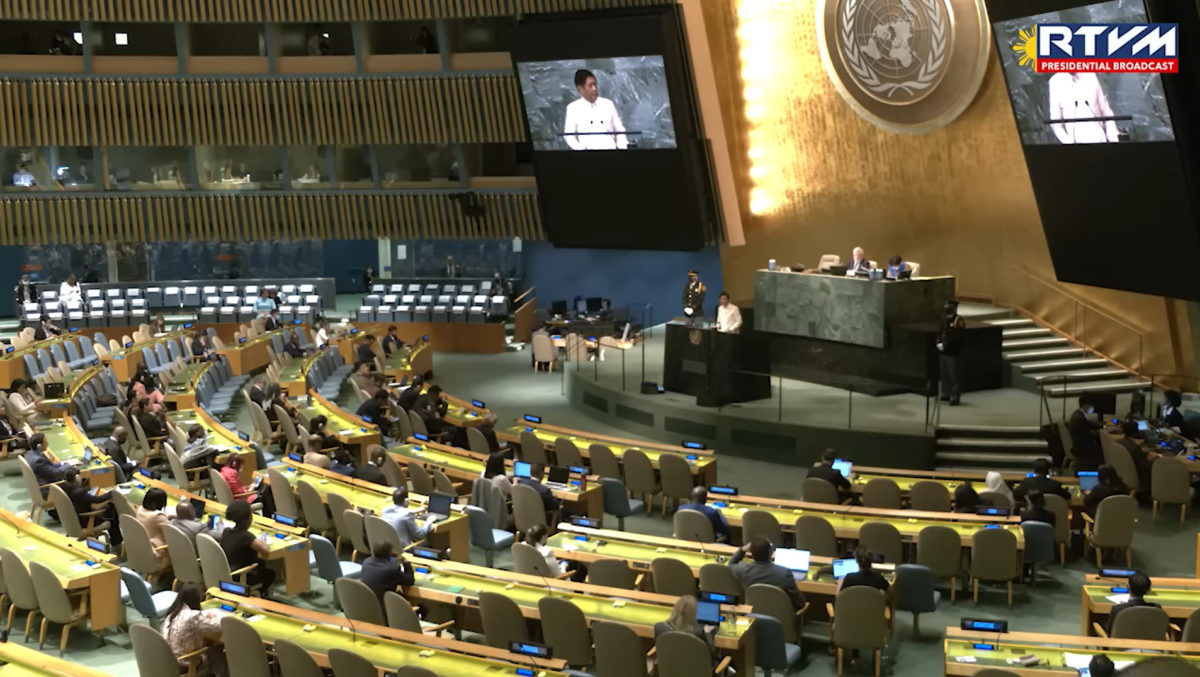In his first 100 days in office, President Ferdinand Marcos Jr. has already made too many promises. The honeymoon’s over; it’s time to buckle down to work if he really wants to give Filipinos “a better life” in a “safer and more prosperous” Philippines.
Marcos said before members of the Manila Overseas Press Club on Oct. 5 that his greatest achievement during his first three months in office was being able to put up a “functional” government with “a very, very good idea” to achieve “strict economic targets.”
He said he has managed to “galvanize government once again into governing.”
While Marcos has earned praises even from critics for having appointed respected technocrats in his economic team, this does not mean anything yet to ordinary people who bear the brunt of rising prices of goods and services.
The Marcos administration’s economic team is headed by Finance Secretary Benjamin Diokno, former governor of the Bangko Sentral, served as Budget secretary of Joseph Estrada and Rodrigo Duterte and Budget undersecretary under Corazon Aquino.
It was during Marcos’ first 100 days when the Philippine peso plunged to a record low at P59: $1 and the inflation rate was at a four-year high of 6.9% in September.
Most ordinary folk don’t understand inflation, but they do complain about higher prices of food items.
In the Pulse Asia survey conducted from Sept. 17 to 21, controlling inflation emerged as the top urgent national concern of the respondents. Marcos scored majority public approval for his performance in addressing most national issues, but the lowest rating in controlling inflation and poverty reduction.
From his inaugural speech on June 30 to his first State of the Nation Address (SONA) on July 25, and in several other public statements, Marcos has made numerous promises, including a comprehensive economic agenda that would help the Philippines surpass its pre-pandemic level and become a “new and transformed” nation despite then coronavirus pandemic.
So far, what we’ve heard from the President are just promises. Yet, we’ve seen photos and videos of him and some members of his family having a great time in victory and birthday parties, watching an expensive concert at Madison Square in New York City, and attending the Formula One Grand Prix in Singapore while a majority of Filipinos are suffering from rising prices and in the aftermath of the destruction of a strong typhoon.
Just in recent weeks, three of his appointees have resigned: executive secretary Victor Rodriguez, press secretary Trixie Cruz-Angeles and Commission on Audit chairman Jose Calida.
To many, the resignations were a welcome development, particularly in view of controversies in which the three were embroiled in.
If Marcos earned praise for his appointment of Diokno to the finance department, Arsenio Balisacan as director general of the National Economic and Development Authority and Felipe Medalla as governor of the central bank, he also deserves a pat in the back for letting Rodriguez, Cruz-Angeles and Calida go.
In the first place, Cruz-Angeles and Calida should not have been appointed because their disqualifications stand out against their qualifications for the positions. Cruz-Angeles is a lawyer who was suspended for three years by the Supreme Court for unethical behavior. She was a blogger who had shared a number of disinformation.
When Calida was solicitor general, the CoA flagged him for allegedly receiving excessive allowances and honoraria in 2017 and 2016 despite CoA regulations which limit the compensation of government officials and employees to only 50 percent of their annual basic salary.
State auditors found that Calida received P8.376 million in allowances in 2017, of which P7.462 million was above the 50 percent limit of his annual pay of P1.828 million.
While Marcos’ other Cabinet appointments are generally good, their performance would still hinge on the directions he provides.
And as the president has said: “It is that sense of urgency…. Again, it is that unity that we bring people together and we are bringing it, [bringing] people together for a reason and the reason is not ourselves, it’s not our families, but it’s our community, it’s our country, it’s our people. That, I think, we have returned into government. I think that’s the most important thing.”
Yes, unity is crucial. We need decisive and concrete actions now to create more jobs, bring down food prices, and deliver other public services efficiently. Ordinary folks want to have parties, too!
The views in this column are those of the author and do not necessarily reflect the views of VERA Files.
This column also appeared in The Manila Times.





